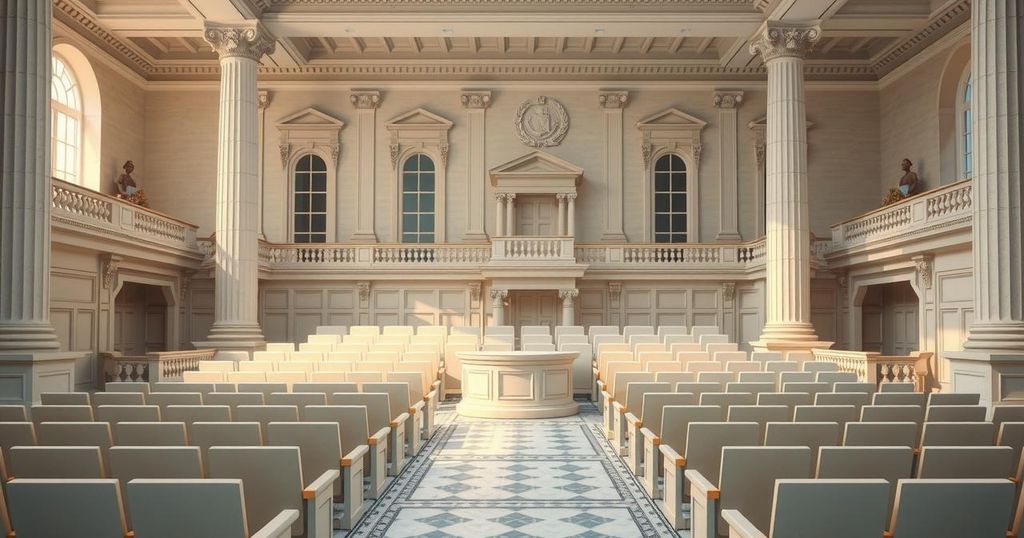Togo Conducts First Senatorial Elections Amid Opposition Protests
Togo held its inaugural senatorial elections amid significant opposition boycott and allegations of constitutional manipulation intended to preserve President Faure Gnassingbe’s power. The new constitution shifts governance roles, leading to debates on its legitimacy and the need for a Senate. Several protests against the election’s integrity were voiced by various opposition parties, branding the process as undemocratic.
LOME: On Saturday, Togo conducted its inaugural senatorial elections, with municipal and regional councilors participating amidst concerns regarding President Faure Gnassingbe’s intent to exploit the new constitution for sustaining power indefinitely. Several opposition factions have voiced their decision to boycott the elections, labeling the parliamentary reforms as manipulated.
The revised constitution transitions from a direct presidential election to a parliamentary system, rendering the presidential role largely ceremonial. Consequently, authority will shift to the president of the Council of Ministers, a position currently occupied by Gnassingbe, who has governed since 2005, succeeding his father’s 38-year rule.
Previously, Gnassingbe was constrained to one final presidential campaign in this year’s elections. A total of 1,500 municipal councilors and 179 regional councilors are responsible for electing 41 out of 61 senate members from 89 candidates, while the president of the Council of Ministers—who is Gnassingbe—will appoint the remaining senators.
“It’s a new constitution that we have never tested. We had to test it to see the sides that are not good and to appreciate the rest,” stated municipal councilor Vimenyo Koffi following his morning vote in Lome.
The Alliance of Democrats for Integral Development (ADDI) is reported to have participated in the elections; however, other significant parties such as the National Alliance for Change (ANC) and the Democratic Forces for the Republic (FDR) have opted to boycott, denouncing the constitutional reforms and the senatorial vote as transparent manipulations.
The ANC articulated its “firm rejection of this anti-democratic process that aims to install an illegal and illegitimate republic.” In contrast, FDR criticized the elections as a “parody” of democracy, asserting that the proposed Senate institution would impose unnecessary costs while local governments lack essential resources to meet public needs.
Supporters of President Gnassingbe argue that these constitutional adjustments will lead to enhanced representation. The governing party, the Union for the Republic, previously achieved a considerable victory in the legislative elections held last April, though opponents condemned the proceedings as marred by extensive fraud and electoral manipulation.
In summary, Togo’s first-ever senatorial elections reflect significant controversies surrounding the newly adopted constitution, with severe opposition claims of rigging. Many opposition parties have boycotted the elections, branding them a move to entrench an illegitimate regime. The outcome of these elections will likely influence future governance dynamics amid ongoing debates over representation and democratic integrity in Togo.
Original Source: www.arabnews.com




Post Comment